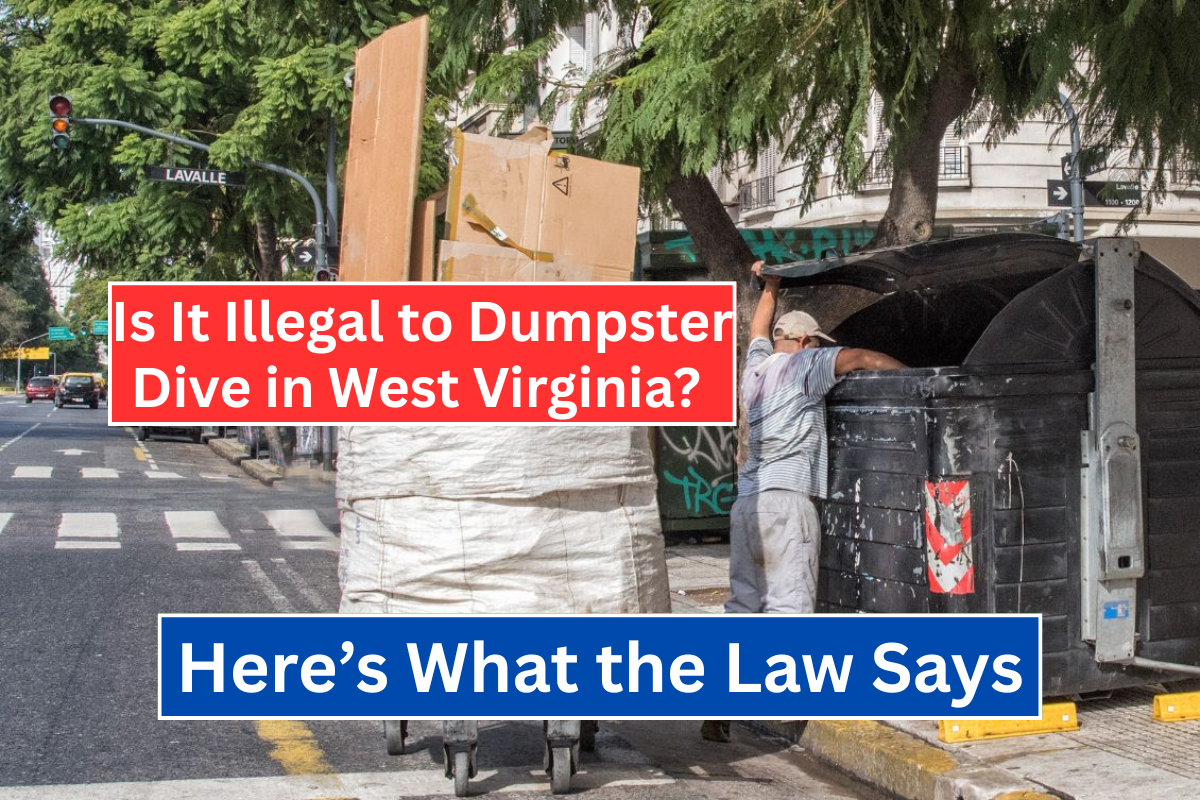Dumpster diving has become a popular activity, with people from all walks of life seeking free, discarded items. Whether it’s food, electronics, or even clothing, many have turned this once-unusual habit into a sustainable lifestyle.
But the big question is, Is dumpster diving legal in West Virginia? Let’s break down the law surrounding it.
What Is Dumpster Diving?
Dumpster diving is the act of searching through dumpsters to find items that are still usable or valuable. This can include everything from fresh produce to unopened products like makeup or household goods.
For some, it’s a fun and eco-friendly hobby, while others see it as a way to reduce waste or even save money.
Legal Issues Around Dumpster Diving
While dumpster diving may sound harmless, the law around it can be tricky. Here’s what you need to know:
Public vs. Private Property
In most cases, dumpster diving is legal on public property. Once an item is thrown away, it technically becomes “public domain,” and the original owner has relinquished their rights to it. However, private property rules complicate things.
Trespassing and Private Property
A lot of dumpsters are located on private property, and many property owners post “No Trespassing” signs. If you dive into a private dumpster, you could be charged with trespassing. Always check for signs or ask for permission before you dive to avoid legal issues.
Locked or Fenced Dumpsters
If a dumpster is locked or fenced, it’s considered off-limits. Breaking into a secured dumpster can lead to trespassing or even theft charges. If you encounter a locked dumpster, it’s best to move on.
The Messy Side of Dumpster Diving
Even if dumpster diving is legal, there can still be other problems. Here are some common issues:
Disorderly Conduct and Littering
If someone feels that the area is being left in a mess or that the diving is causing a disturbance, they could call the authorities. While many cities overlook casual diving, it’s always a good idea to clean up after yourself.
Leaving the area messy could lead to charges of disorderly conduct or littering.
Recyclables and Theft
In some places, taking recyclables, especially from bins, can be considered theft—particularly if you intend to sell them for cash. Make sure you understand local rules about collecting and reselling recyclables.
Legal Risks for Dumpster Owners
Dumpster owners also have legal responsibilities. If someone gets hurt while diving or gets sick from food found in a dumpster, they might sue the property owner. To avoid this risk, some businesses or property owners may strictly enforce a “no diving” policy.
What About West Virginia?
In West Virginia, the rules are largely the same as in other states. Dumpster diving is typically legal on public property, but local cities or towns may have their own specific regulations.
Private property rules apply, so be cautious of dumpsters on private land, especially those marked with “No Trespassing” signs. If you’re unsure, do some research or ask for permission from the property owner.
While dumpster diving isn’t illegal at the federal level, state and local laws can make it complicated. In West Virginia, you can generally dive on public property, but always be aware of private property rules and local ordinances.
To avoid legal trouble, remember to ask for permission, stay respectful, and keep the area clean.












